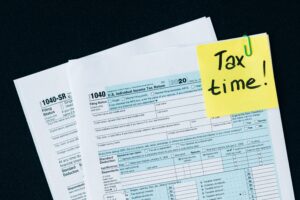Q4 Estimated Tax Payment
To keep up with their tax obligations, many individuals pay their anticipated taxes quarterly throughout the year. In order to prevent an unexpected tax bill or penalty when they file their taxes in 2023, anybody who paid too little tax in 2022 must submit a Q4 payment on or before January 17.
Here’s Who Needs To Make A Payment
Individuals who are self-employed or receive income from independent contractors that is not subject to tax withholding should pay their taxes to the IRS on a quarterly basis.
Additionally, those who owed money when they filed their tax return for the current year frequently find themselves in the same predicament when they file for the next year, so they might want to think about making anticipated tax payments. Typical taxpayers in this circumstance include:
- Those who itemized in the past but are now taking the standard deduction
- Two wage-earner households
- Employees with non-wage sources of income such as dividends
- Those with complex tax situations
- Those who didn’t increase their tax withholding
Understanding What’s Taxable
The majority of income, including that from work, interest on refunds, income from gig economies, and revenue from digital assets, is taxed. Taxpayers should factor in all sources of earned income when estimating their quarterly tax payments, including income from side hustles, part-time jobs, and the sale of items.
Additionally, certain financial transactions, particularly those completed at the end of the year, may have an unanticipated tax consequence and need the payment of projected taxes. Year-end and holiday bonuses, stock dividends, capital gains distributions from mutual funds, and stocks, bonds, virtual currency, real estate, or other property sold at a profit are a few examples.
Key Points:
Individuals who are self-employed or receive income from independent contractors that is not subject to tax withholding should pay their taxes to the IRS on a quarterly basis. Typical taxpayers in this circumstance include those who itemized in the past but are now taking the standard deduction. Certain financial transactions, particularly those completed at the end of the year, may have an unanticipated tax consequence.
Reference:
https://www.irs.gov/newsroom/final-2022-quarterly-estimated-tax-payment-due-january-17
https://www.irs.gov/businesses/small-businesses-self-employed/estimated-taxes

